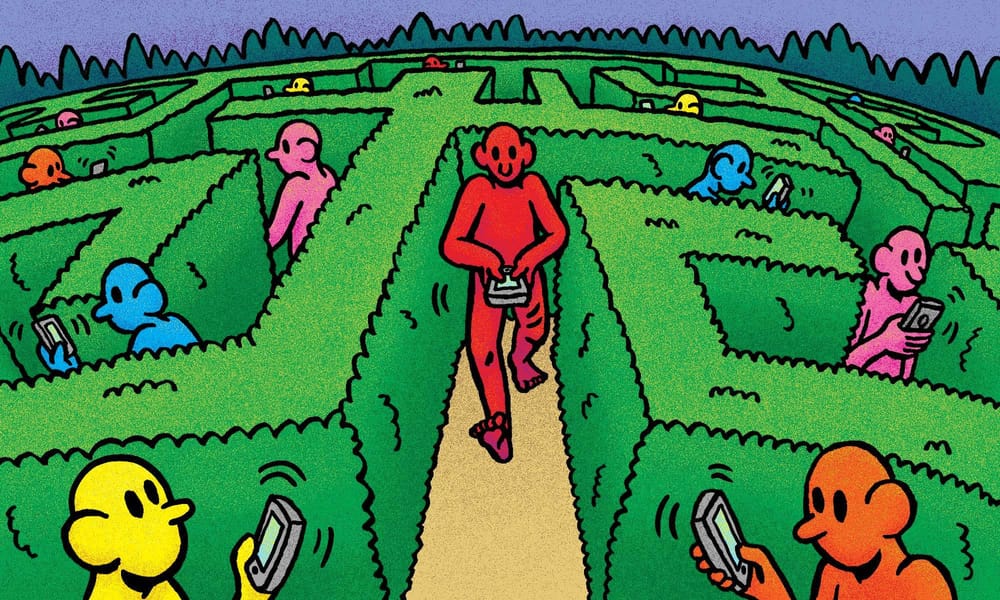The principal philosophical foundation of human rights is a belief in the existence of a form of justice valid for all people, everywhere. Human rights have become crucial to the contemporary universal understanding of how human beings should be treated by one another and by national and international political bodies. At their best and most basic, human rights are thought of as potential moral guarantees for each human being to lead a minimally good life.
In the present day, discourse around human rights is influenced by the Universal Declaration of Human Rights (UDHR), a milestone document adopted by the United Nations General Assembly in 1948. The UDHR set out a broad range of rights and freedoms that are universally recognised and protected, although not legally binding. But where did all this originate and who were the thought leaders responsible for moulding the discussion on human rights? Furthermore, what innovative concepts did they contribute to enhance our comprehension of this subject?
It is impossible to discuss the concept of human rights without philosophy intersecting the conversation. Over time, philosophers have played a vital role in not only establishing the conceptual foundations of human rights but also in shaping the understanding of these rights both before and after the adoption of the UDHR. Before the UDHR, various philosophical thinkers explored the concept of human rights from different perspectives such as natural law theory, social contract theory and Enlightenment philosophy. Alongside these perspectives, the UDHR was influenced by further philosophical theories, liberal democracy concepts, and various religious and cultural perspectives to articulate a broad range of rights. After the adoption of the UDHR, contemporary philosophers have engaged with human rights to further the discourse of more contemporary schools of thought including feminism, social justice and philosophy’s intersection with economics.
The Lovepost explores the profound insights and contrasting viewpoints of some of these influential thinkers, old and new, as they have shaped the understanding of human liberties. To read their thoughts is to see where new perspectives emerge, deepening simplistic notions and shedding light on the intricacies of rights in society.
John Locke
John Locke, an influential 17th century English philosopher, made substantial contributions to the theory of human rights and consequently the development of the UDHR. Although ‘human rights’ was not a term explicitly used in his era, his ideas encouraged many of the principles underlying modern notions of human rights and individual liberties.
Locke's human rights theory is rooted in his broader political philosophy, articulated in his 1690 publication Two Treatises of Government. Central to Locke's theory is the concept of natural rights: the idea that individuals possess inherent rights by virtue of being human, including the rights to life, liberty and property—all which exist independently of any social contract or political authority.
Locke’s religious beliefs influenced his work. He saw God as the creator of the universe and the source of natural law, from where natural rights stemmed. According to Locke, God bestowed natural rights and moral obligations on individuals. Therefore, these rights and obligations were grounded in divine authority.
Locke argued that the primary purpose of government is to protect these natural rights. He believed that individuals voluntarily entered into a social contract with their government, relinquishing some of their natural freedoms in exchange for the protection of their rights. In Locke's view, governments are created to serve the interests of the people; they are subject to the rule of law and should not exceed their authority. Should a government fail in protecting its citizens, Locke maintained that people have the right to rebel.
Locke’s theory also emphasised the fundamental equality of all individuals, rejecting the idea of divine rights for kings and those in power. He championed individual freedom, stating that people have the right to pursue their own happiness and make choices concerning their own bodies, possessions and labour, as long as they do not infringe upon the rights of others. This principle underlies the concept of personal autonomy and freedom of thought, which are fundamental elements of human rights as recognised today.
It is important to note that Locke's conception of rights was not without limitations. He did not extend these rights to certain groups, such as women, slaves and Indigenous peoples—views which reflect the prevailing attitudes of his time. However, his ideas on natural rights provided a philosophical framework that would be expanded and refined by subsequent thinkers, leading to the broader understanding of human rights seen today.
Immanuel Kant
A German philosopher of the 18th century, Immanuel Kant proposed a theory of human rights rooted in his moral and ethical philosophy. His theory emphasised the importance of the inherent human dignity and autonomy of every individual. He argued that individuals have intrinsic worth and should be treated as ends in themselves, not merely as means to an end. Kant provided a moral foundation for human rights discourse, particularly in his works Groundwork for the Metaphysics of Morals and The Metaphysics of Morals.
Kant believed human rights must be universally respected. He thought they were derived from a sense of duty and reason; not from consequences, emotions or bestowed by a higher power. Kant argued that the guiding principle for human rights is the categorical imperative, a moral law that commands individuals to act in ways they would wish everyone else to act. In its practical formulation, Kant states, "Act in such a way that you treat humanity, whether in your own person or in the person of any other, always at the same time as an end and never merely as a means to an end."
From the categorical imperative, Kant emphasised several key human rights principles:
- The right to individual autonomy and freedom to make one’s own choices (without infringing upon the rights of others)
- The right to be treated with respect and dignity, regardless of one’s status in society
- The right to freedom of thought, speech and expression (but this right is not to be used to deceive or harm others)
- The right to possess property, as an extension of an individual’s personhood
Similar to Locke, Kant believed human rights were individual, universal and natural. However Kant differed with his view on the role governments play for society, believing they should have limited power, strictly confined to maintaining legal and judicial frameworks. He also opposed the idea of revolution, believing resolution with unjust governments should occur peacefully through legal means.
Kant’s work offers a formulation of essential moral principles which, despite their formal and abstract nature, rest on the pillars of equality and moral autonomy. Human rights, in this context, are the rights we bestow upon ourselves as independent and inherently equal individuals. However, it should be noted that his views on the rights of marginalised groups were limited by the prejudices of his time, and his ideas of equality did not extend to women, slaves and Indigenous peoples.
Jean-Jacques Rousseau
Jean-Jacques Rousseau, an 18th century Enlightenment philosopher, developed a profound theory of human rights which he discussed in his 1762 work The Social Contract. His ideas questioned the emphasis on individuality and prevailing beliefs about political authority. Rousseau's theory prioritised innate freedom and equality, aiming to establish a fair society through the social contract concept—a collective agreement among people to form a civilised society.
Rousseau's theory of human rights contemplates a hypothetical state of nature where humans lived free from organised societies. In this primal state, individuals were inherently free and equal, lacking any form of institutionalised authority or inequality. However, Rousseau recognised that the emergence of private property and social hierarchies led to conflicts and the subsequent need for a social contract. This collective agreement establishes a civil society where certain natural freedoms are surrendered in exchange for security, protection of rights, and the common good.
Rousseau's theory argues that true freedom comes from the recognition and protection of the general will, which represents the collective interests of the community, rather than the desires of specific individuals. Rousseau's human rights ideas stemmed from his belief in the inherent goodness of human nature. He also emphasised the importance of citizenship and active participation in public life to achieve genuine freedom. He critiqued private property ownership, which he saw as a cause of poverty and inequality. Additionally, he highlighted the importance of education to enable individuals to participate in the democratic process and understand their rights.
While Rousseau's ideas about human rights were groundbreaking in their time, they have been subject to criticism. Some have argued that his theory rests on idealistic assumptions about the goodness and cooperativeness of human nature. Nevertheless, Rousseau's work continues to influence discussions of democracy, social justice and the balance between individual freedom and collective responsibility in enabling a fair society.
19th century developments
The 19th century saw the emergence of movements advocating for the abolition of slavery and the recognition of women's rights, further expanding the discourse of human rights to encompass issues of equality and justice. Additionally, social reform movements, including abolitionism and women's rights advocacy, started to challenge societal norms and demand recognition of inherent human rights for marginalised groups. Overall, the 19th century set the stage for the expansion of human rights discourse during the 20th century. These periods saw an evolution from individual rights to a broader recognition of the universal and interconnected nature of human rights, influenced by historical events and changing social contexts.
Amartya Sen
Amartya Sen, a contemporary Indian economist and philosopher, has made contributions to the theory of human rights through his capability approach. Sen's work challenges the traditional understanding of rights as entitlements to certain goods or services, and instead highlights the importance of enabling people to lead lives they value.
In Sen’s view, human rights encompass a range of freedoms including political, economic, social and cultural freedoms. At the core of Sen's capability approach lie the notions of ‘capabilities’ and ‘functionings’. Capabilities are what people can achieve if they choose to do so. Functionings are realised capabilities: diverse and tangible achievements of individuals which can include good health, education, sufficient access to food and shelter, social inclusion and engagement in political processes.
Sen believes that enhancing an individual’s capabilities empowers them to effectively exercise their rights and make genuine choices. For example, having the right to education is not just about access to schools, but also includes ensuring individuals have the ability to learn and acquire knowledge. Similarly, having the legal right to vote is not enough if individuals lack the capabilities necessary to exercise that right, such as access to information or political education.
Sen believes human rights can be achieved through his capability approach, by fostering social and economic opportunities, addressing social inequalities, empowering individuals and investing in human development. Sen argues that providing people with access to opportunities such as education, healthcare and employment is crucial for empowering individuals to make meaningful choices and participate in society. He believes that poverty and lack of freedom are intrinsically linked, as poverty reduces people's capabilities and limits their freedom to choose a life they value. Furthermore, Sen is critical of the idea that human rights can be achieved merely through the law alone, as discussed in his 1999 work Development as Freedom. Sen's approach focuses on empowering individuals to take an active role in shaping their lives and society including political participation, access to information and the ability to influence decision-making processes—something he believes can stem from investments in education, healthcare and nutrition. Sen's work has influenced various institutions, including the United Nations Development Programme (UNDP), which adopted the Human Development Index (HDI) based on his ideas.
Martha Nussbaum
Martha Nussbaum, a contemporary American philosopher and scholar, further developed Sen’s theory of human capabilities and their role in fostering an equitable society. Her theory is laid out in her book Creating Capabilities: The Human Development Approach, in which the main framework contrasts traditional theories that focus on human rights as entitlements.
In her theory, Nussbaum identifies ten fundamental capabilities that she believes are essential for a dignified life. These capabilities include life, bodily health, bodily integrity, senses, imagination, thought, emotions, practical reason, affiliation and control over one's environment. Nussbaum defines these capabilities as universal and necessary for all human beings, transcending cultural and societal differences.
According to Nussbaum, governments and societies have a responsibility to ensure that these capabilities are protected for every individual. Nussbaum argues that human rights should not be mere abstract concepts, but tangible and actionable entitlements that improve people's lives. Nussbaum emphasises the importance of social and economic conditions in fulfilling these capabilities. She highlights the responsibility of governments and societies to create opportunities and provide resources to ensure that all individuals can access and develop these essential capabilities. In this sense, her theory connects human rights with social justice and development, advocating for a more holistic and inclusive understanding of rights. This contrasts with previous philosophers who advocated to minimise non-essential government interference, and simply focused on freedoms.
Furthermore, Nussbaum recognises that diverse societies and cultures may require different approaches to achieve these capabilities, respecting and incorporating local traditions and values—rejecting a one-size-fits-all approach to human rights. Nussbaum recognises the interdependence of human capabilities: for instance, a lack of education may hinder an individual's writing skills, which in turn limits their economic opportunities and access to healthcare.
Critics of Nussbaum's capabilities approach argue that her framework may be too ambitious and impractical to implement on a global scale. Nevertheless, by focusing on the promotion and protection of these capabilities, Nussbaum seeks to create a foundation for a more just and equitable society where every individual can thrive.
Samuel Moyn
Samuel Moyn, a contemporary historian and professor of law and history, has perspectives of human rights which offer a critical view of the history and development of the concept. In his book The Last Utopia: Human Rights in History, Moyn presents a thought-provoking theory of human rights, offering a fresh perspective on their historical development and current understanding.
Moyn's central argument is that human rights as a global discourse took shape relatively recently, mainly during the mid-20th century after the world wars. Moyn challenges the prevailing assumption that human rights have a deep philosophical lineage, arguing instead that they are a relatively recent phenomenon. He believes that human rights discourse became more prominent in the 20th century due to several factors, including the political pressure to address past atrocities, the decline of other grand ideologies, and the rise of a more globalised and interconnected world. Moyn argues that the surge in human rights discourse was not primarily driven by a genuine concern for human dignity and welfare, but rather by political and ideological motivations. He suggests that the horrors of World War II, including the Holocaust, created a moral vacuum in which traditional utopian and revolutionary ideologies lost their appeal. As a result, human rights gained prominence due to their ability to provide a moral framework in the absence of viable alternatives.
Furthermore, Moyn believes the early concepts of human rights centred predominantly on civil and political rights like freedom of speech and fair trials, while socioeconomic rights and broader social justice concerns were overlooked. He argues that it was not until the last 50 years that human rights began to encompass a more comprehensive array of issues, including economic inequality and social rights.
Moyn also argues that contemporary human rights discourse often focuses too narrowly on individual civil and political rights while neglecting collective rights and social justice issues. He questions the over-reliance on legal mechanisms and international courts to enforce human rights, cautioning against neglecting the broader social and political context.
Overall, Moyn's ideas challenge the concept of human rights as a timeless and universally accepted moral framework. Instead, he puts human rights within a specific historical context and emphasises the significance of political and ideological factors in shaping its modern understanding and impact on global affairs.
Through the centuries, philosophical minds have grappled with the concept of human rights, their nature and their role in society. John Locke's emphasis on natural rights laid the groundwork for individual freedoms and limited government intervention. Immanuel Kant's notion of inherent human dignity established the moral basis for human rights. Jean-Jacques Rousseau's social contract theory offered insights into the collective responsibility for upholding human rights within societies.
Fast forward to more contemporary thinkers like Martha Nussbaum and Amartya Sen, whose capabilities approach expanded the scope of human rights, encompassing not just freedoms but also the means to live a dignified life. Samuel Moyn's critical analysis urges us to recognise human rights as an historically situated discourse, raising questions about its limitations. Collectively, the works of these philosophers have enriched the discourse around human rights, prompting a deeper exploration of their complex nature and their potential to shape a more just and inclusive global society.







